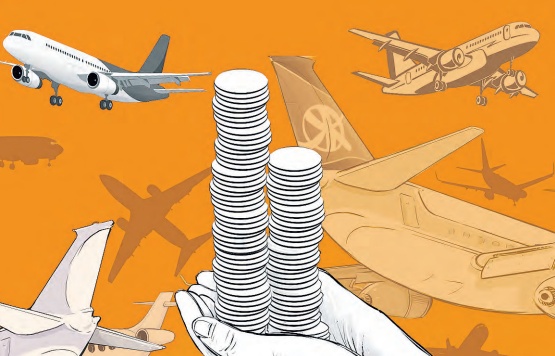
Africa is a continent of untapped potential.
According to UNEP, it has “30 percent of the world’s mineral reserves, eight per cent of the world’s natural gas and 12 percent of the world’s oil reserves. The continent has 40 percent of the world’s gold and up to 90 percent of its chromium and platinum.
The largest reserves of cobalt, diamonds, platinum and uranium in the world are in Africa. It holds 65 per cent of the world’s arable land and ten percent of the planet’s internal renewable fresh water source”
Yet Africa remains at a distinct disadvantage compared to other continents. Unlike others, it does not have the road network that would facilitate intracontinental travel and trade.
Movement of people and goods is therefore left to air travel.
Still, investment in aviation remains underwhelming, with only a handful of prescient governments making serious efforts to redress this challenge. Even then, the disadvantages stand out.
Ordinarily, airlines globally operate on very thin margins. The International Air Transport Association director general Willie Walsh puts this margin at 3.6 per cent. This translates to $7 (Sh906) per passenger.
Walsh further says, “While the global average net profit per passenger for 2025 is expected to be $7, African airlines will earn a profit of $1 (Sh129) per passenger.”
This disparity is attributable to the fact that aviation costs in Africa are higher than the global average. From fuel, landing and parking fees to passenger handling charges, the continent leads the rest of the world.
In 2025, a new challenge arises. The European Union has started the global transition to sustainable aviation fuel.
All airlines flying into the EU will be required to have a two per cent SAF blended with the usual fossil-based aviation fuel.
SAF is up to four times the cost of conventional fuel. This new requirement translates to additional costs for airlines.
The EU has created a 2-billion-euro kitty to support the transition of its airlines to SAF. Sadly, this kitty cannot be accessed by African airlines, leaving them with one of two choices: absorb the SAF cost and add to operating costs that are already the highest in the world.
Or pass the cost over to passengers and thus, make African airlines flying into Europe uncompetitive. Hitherto, no concessions have been forthcoming from the EU that would preclude African carriers from the SAF mandate even if temporarily as they look for solutions.
There are some African airlines that already have subsidies in place because of their value as strategic national assets. Ethiopian Airlines is one such company.
Its planes are acquired using government guarantees to ensure favourable discounts from manufacturers.
Further, it receives direct subsidies from the Ethiopian government with provisions for the same made as a line item in the country’s annual budget.
This shot in the arm sets its head and shoulders above its peers. It has been ranked “Best African Airline” at Business Traveler Awards 2024 for the fifth consecutive year.
Kenya Airways is another of the prescient airlines aforementioned in this article. In 2023, it was the first airline on the continent to use SAF on a long-haul flight from Nairobi to Amsterdam.
More recently, it commissioned a pyro-diesel plant that converts plastic waste into usable diesel fuel. This fuel is appropriate for powering essential ground operations such as generators, boilers and ground support equipment.
Still, the airline must contend with competition from without the continent and that is heavily subsidised.
The government has already given much needed support to KQ by repayment of part of its debt in a novated arrangement. More is needed. From the foregoing, a case is made for continued support from the government without which no airline can exist in the next few years to come.











